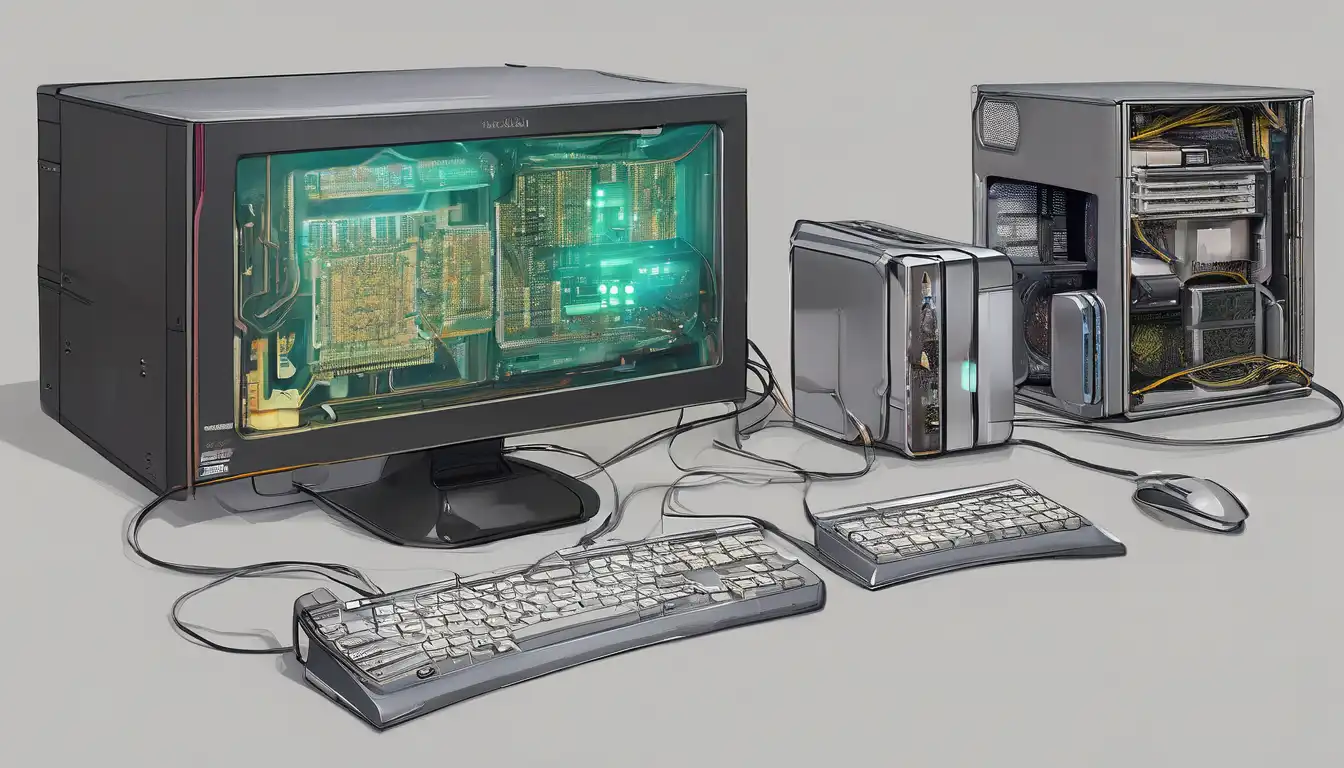Revolutionary Advances in Computer Hardware Technology
The landscape of computer hardware technology is undergoing unprecedented transformation, with innovations emerging at an accelerated pace. From quantum computing breakthroughs to AI-optimized processors, the latest developments are reshaping how we interact with technology and pushing the boundaries of computational power. These advancements are not just incremental improvements but represent fundamental shifts in hardware design and functionality.
Next-Generation Processor Architectures
Processor technology has evolved beyond traditional CPU designs, with manufacturers introducing revolutionary architectures that prioritize efficiency and specialized performance. The latest processors incorporate advanced node technologies, with some reaching 3nm and even 2nm manufacturing processes. These smaller nodes enable higher transistor density, resulting in improved performance per watt and reduced power consumption.
Major innovations include heterogeneous computing architectures that combine different types of cores optimized for specific tasks. High-performance cores handle demanding applications while efficiency cores manage background processes, creating a balanced system that maximizes battery life without compromising performance. Additionally, AI acceleration has become a standard feature, with dedicated neural processing units (NPUs) integrated directly into modern processors.
Quantum Computing Breakthroughs
Quantum computing represents one of the most exciting frontiers in hardware technology. Recent developments have seen significant progress in qubit stability and error correction, bringing practical quantum computing closer to reality. Companies are now demonstrating quantum processors with hundreds of qubits, capable of solving complex problems that would take classical computers thousands of years.
The hardware infrastructure supporting quantum computing has also seen remarkable improvements. Cryogenic cooling systems have become more efficient, while quantum interconnects enable better communication between qubits. These advancements are paving the way for quantum computers to tackle challenges in drug discovery, financial modeling, and climate research.
Advanced Memory and Storage Solutions
Memory technology has evolved dramatically with the introduction of DDR5 RAM, offering significantly higher bandwidth and improved power efficiency compared to previous generations. The latest memory modules can achieve speeds exceeding 6400 MT/s, providing substantial performance boosts for data-intensive applications and gaming.
Storage technology has seen equally impressive innovations, with PCIe 5.0 SSDs delivering unprecedented read/write speeds. These solid-state drives can achieve sequential read speeds exceeding 14,000 MB/s, making them ideal for content creation, scientific computing, and high-performance gaming. The adoption of 3D NAND technology continues to increase storage density while reducing costs.
Graphics Processing Evolution
Graphics processing units (GPUs) have transformed from specialized rendering hardware to versatile computational engines. The latest GPU architectures feature ray tracing acceleration, AI-enhanced upscaling, and real-time rendering capabilities that were unimaginable just a few years ago. These advancements are driving innovation in gaming, virtual reality, and professional visualization.
Modern GPUs also incorporate dedicated hardware for AI inference and training, making them essential for machine learning applications. The integration of tensor cores and RT cores enables real-time AI processing alongside traditional graphics rendering, opening new possibilities for interactive applications and intelligent systems.
Connectivity and Interface Innovations
Hardware connectivity has seen significant upgrades with the widespread adoption of USB4 and Thunderbolt 4 technologies. These interfaces provide data transfer speeds up to 40 Gbps while supporting multiple protocols simultaneously. The latest connectivity standards also enable advanced features like power delivery, display output, and peripheral connectivity through a single cable.
Wireless connectivity has advanced with Wi-Fi 6E and the emerging Wi-Fi 7 standards, offering improved bandwidth, lower latency, and better network efficiency. These wireless technologies are crucial for supporting the growing ecosystem of connected devices and enabling seamless data transfer across multiple platforms.
Cooling and Power Management
Thermal management has become increasingly important as hardware components generate more heat in smaller form factors. Advanced cooling solutions include vapor chamber technology, liquid cooling systems, and phase-change materials that efficiently dissipate heat while maintaining quiet operation. These innovations are essential for sustaining peak performance in compact devices.
Power management has seen substantial improvements with more efficient voltage regulation modules and intelligent power distribution systems. Modern hardware can dynamically adjust power consumption based on workload demands, extending battery life in mobile devices while ensuring consistent performance in desktop systems.
Emerging Hardware Technologies
Several emerging technologies are poised to redefine computer hardware in the coming years. Neuromorphic computing, which mimics the human brain's neural structure, offers promising alternatives to traditional von Neumann architectures. Photonic computing, using light instead of electrons for data transmission, could revolutionize processing speed and energy efficiency.
Memristor technology is another exciting development, potentially replacing traditional memory and storage with non-volatile resistive memory that combines the speed of RAM with the persistence of flash storage. These emerging technologies represent the next wave of innovation that will shape future computing paradigms.
Impact on Various Industries
The latest hardware innovations are transforming industries across the board. In healthcare, advanced processors enable real-time medical imaging and AI-assisted diagnostics. The financial sector benefits from high-performance computing for complex risk analysis and algorithmic trading. Creative industries leverage powerful GPUs for realistic rendering and real-time content creation.
Scientific research has been particularly impacted, with specialized hardware accelerating simulations, data analysis, and computational modeling. These advancements are enabling breakthroughs in fields ranging from climate science to particle physics, demonstrating the far-reaching implications of hardware innovation.
Future Outlook and Trends
Looking ahead, several trends are likely to dominate hardware development. The integration of AI capabilities directly into hardware components will continue to accelerate, creating more intelligent and adaptive systems. Sustainability will become increasingly important, with manufacturers focusing on energy-efficient designs and recyclable materials.
The convergence of different hardware technologies will lead to more integrated solutions that combine processing, memory, and connectivity in innovative ways. As quantum computing matures and new materials like graphene become commercially viable, we can expect even more dramatic transformations in computer hardware technology.
These innovations collectively represent a new era in computing, where hardware capabilities are expanding at an unprecedented rate. The latest developments not only improve performance but also enable new applications and use cases that were previously impossible. As technology continues to evolve, the boundaries of what computers can achieve will keep expanding, driven by continuous hardware innovation.
